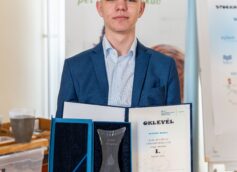heading
Phosphorus is a vital nutrient for plant growth, playing a crucial role in various physiological processes, including energy transfer, nucleic acid synthesis, and root development. As an essential component of DNA, RNA, and ATP, phosphorus is indispensable for the overall health and productivity of plants. Despite its significance, phosphorus is considered a non-renewable resource with limited global reserves. The primary source of phosphorus is phosphate rock, and the extraction and production processes are energy-intensive. The finite nature of phosphorus resources raises concerns about future availability and sustainability, emphasizing the need for efficient phosphorus
management. Thus, the present study, aims at benefit from the phosphorus present in eutrophic water through two aquatic plants (i.e., Pistia stratiotes and duckweed). This study investigates the feasibility of growing these aquatic plants on different water types. The focus is on observing the growth patterns, leaf protein production, and the generation of brown juice as potential by-products containing high phosphorus content and a possible plant growth biostimulant. The study aims to provide insights into sustainable phosphorus utilization and recovery from eutrophic water within the context of a circular economy.
To find solutions to problems and keep up with change, we need to understand how wetland ecosystems work!

Documentation
Biorefinery of phosphorus from eutrophic water: A circular economy approach Phosphorus is a vital nutrient for plant growth, playing a crucial role in various physiological processes, including energy transfer, nucleic acid synthesis, and root development. As an essential component of DNA, RNA, and ATP, phosphorus is indispensable for the overall health and productivity of plants. Despite its significance, phosphorus is considered a non-renewable resource with limited global reserves. The primary source of phosphorus is phosphate rock, and the extraction and production processes are energy-intensive. The finite nature of phosphorus resources raises concerns about future availability and sustainability, emphasizing the need for efficient phosphorus management. Thus, the present study, aims at benefit from the phosphorus present in eutrophic water through two aquatic plants (i.e., Pistia stratiotes and duckweed). This study investigates the feasibility of growing these aquatic plants on different water types. The focus is on observing the growth patterns, leaf protein production, and the generation of brown juice as potential by-products containing high phosphorus content and a possible plant growth biostimulant. The study aims to provide insights into sustainable phosphorus utilization and recovery from eutrophic water within the context of a circular economy.
Biorefinery of phosphorus from eutrophic water: A circular economy approach Phosphorus is a vital nutrient for plant growth, playing a crucial role in various physiological processes, including energy transfer, nucleic acid synthesis, and root development. As an essential component of DNA, RNA, and ATP, phosphorus is indispensable for the overall health and productivity of plants. Despite its significance, phosphorus is considered a non-renewable resource with limited global reserves. The primary source of phosphorus is phosphate rock, and the extraction and production processes are energy-intensive. The finite nature of phosphorus resources raises concerns about future availability and sustainability, emphasizing the need for efficient phosphorus management. Thus, the present study, aims at benefit from the phosphorus present in eutrophic water through two aquatic plants (i.e., Pistia stratiotes and duckweed). This study investigates the feasibility of growing these aquatic plants on different water types. The focus is on observing the growth patterns, leaf protein production, and the generation of brown juice as potential by-products containing high phosphorus content and a possible plant growth biostimulant. The study aims to provide insights into sustainable phosphorus utilization and recovery from eutrophic water within the context of a circular economy.
Biorefinery of phosphorus from eutrophic water: A circular economy approach
